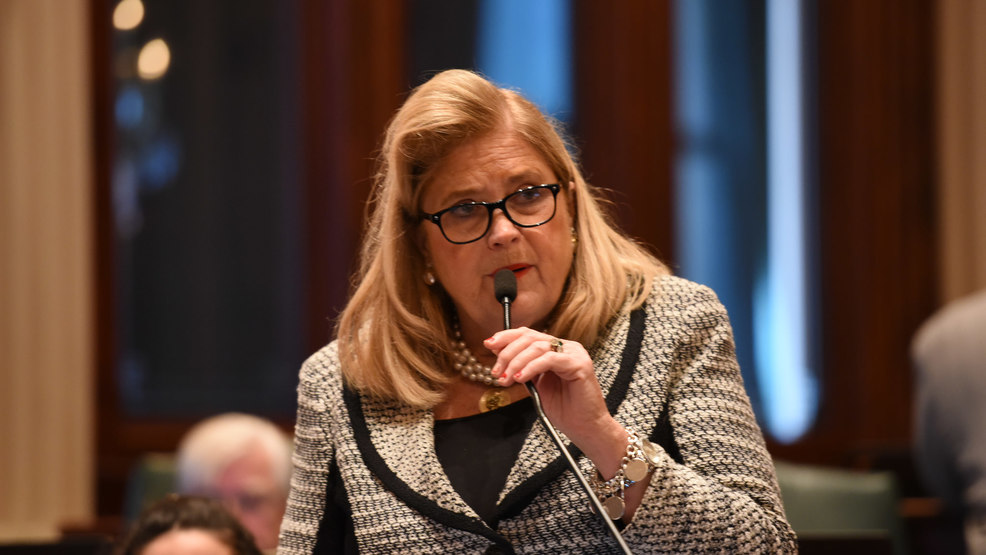



Get new exclusive access to healthcare business reports & breaking news




State Rep. Patricia Bellock has accepted Gov. Bruce Rauner’s recent appointment to serve as director of the Illinois Department of Healthcare and Family Services (DHFS). Her position is effective July 11.
To take on the new role, Bellock first resigned as State Representative for the 47th District. The announcement was made in a July 2 post on her website, where she mentioned that “a new representative will be appointed in the coming weeks to serve the remainder of my term that expires in January.”
A year ago, Bellock said she would not be looking for a full-time job upon retiring from the Illinois House, for which she became the first woman to serve as Deputy Minority Leader in 2013.
When the governor and his team asked her to lead the DHFS, she said she thought it would be “a real honor.”
In her previous role, Bellock worked around-the-clock, traveling to Springfield and attending community events in the evenings and on weekends. Her new position will have her working mostly from the department’s downtown Chicago office.
“If you are an active legislator, you are working all the time. This will be a 9 to 5 job,” she said.
Bellock will be responsible for managing Illinois’ Medicaid system, which she has sought to reform throughout her career in the General Assembly, in collaboration with legislators from both parties. Her bipartisanship might come in handy when dealing with the complex healthcare ecosystem made of insurers, providers, social service agencies, patients and more.
“Illinois is so fortunate to have an advocate for health and human services as dedicated and talented as Patti Bellock,” Gov. Rauner said.
He added that “she has been instrumental in virtually every health advancement our state has made in the last two decades.” Her track record backs up Gov. Rauner’s statement.
Although she will now mostly work from a downtown office, Bellock has spent two decades investigating healthcare issues in communities all over the Chicago area including: taxes, substance abuse, alzheimer’s, mental health, violence prevention and human trafficking.
For DHS, a $22 billion agency that serves 3.2 million Medicaid recipients and 500,000 families that receive child support, having a leader who knows what those patients struggle with could boost the department’s services.
Bellock seems to know a thing or two about how health providers operate.
One, the Hospital Assessment bill, creates a program that included a $263 million transformation fund to help financially strapped hospitals. Another is the Omnibus Medicaid bill, which provided bridge funding for the hospital assessment program. This bill also developed a more uniform process for paying for ambulances and created an advisory council to set criteria and standards for managing children with special needs.
For insurance companies, on the other hand, Bellock’s appointment might cause unease. In more than one instance, she proved to be merciless towards insurers.
At the beginning of 2018, she signed on as a cosponsor of a bill that would prohibit Illinois health insurers from increasing patients’ out-of-pocket costs or from reducing or eliminating coverage for a prescription drug in the middle of the policy year, a practice called “non-medical switching.”
She also played a key role in the creation and passage of the Save Medicaid Access and Resources Together (SMART) Act reforms of 2012. The SMART Act was passed in order to detect and prevent fraudulent billing practices.
Recently, Bellock helped to ensure passage of Better Care Illinois, the state’s landmark 1115 Medicaid waiver. Approved earlier this year for ten pilot programs, the waiver is expected to bring the opioid crisis to a halt in the near future.
Felicia Norwood, who is stepping down as Director of the Illinois Department of Healthcare and Family Services, will serve as Anthem’s Executive Vice President and as President of the Government Business Division. Among other responsibilities, Norwood will be in charge of the company’s Medicaid and Medicare initiatives.
During a House Appropriations-Human Services Committee hearing in 2017, Bellock thanked Norwood, who was a panel witness, for her dedication through the “difficult process” of putting together a new improved Medicare program.
It’s difficult to know what course Patricia Bellock will set for DHFS.
Based on her previous actions, it would be fair to expect some bold initiatives.